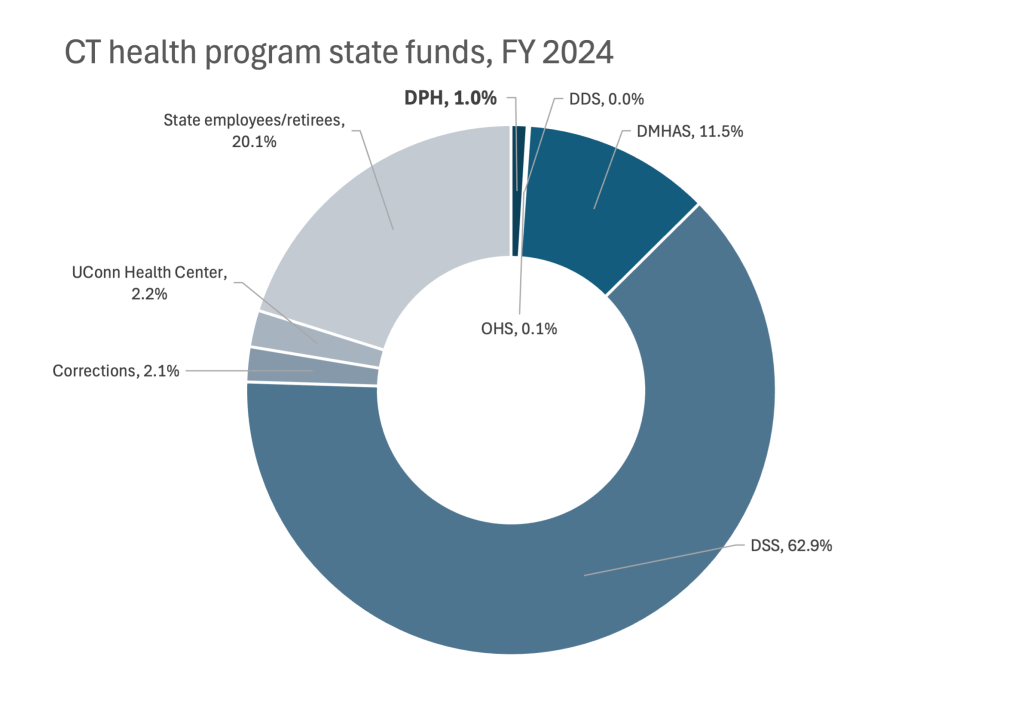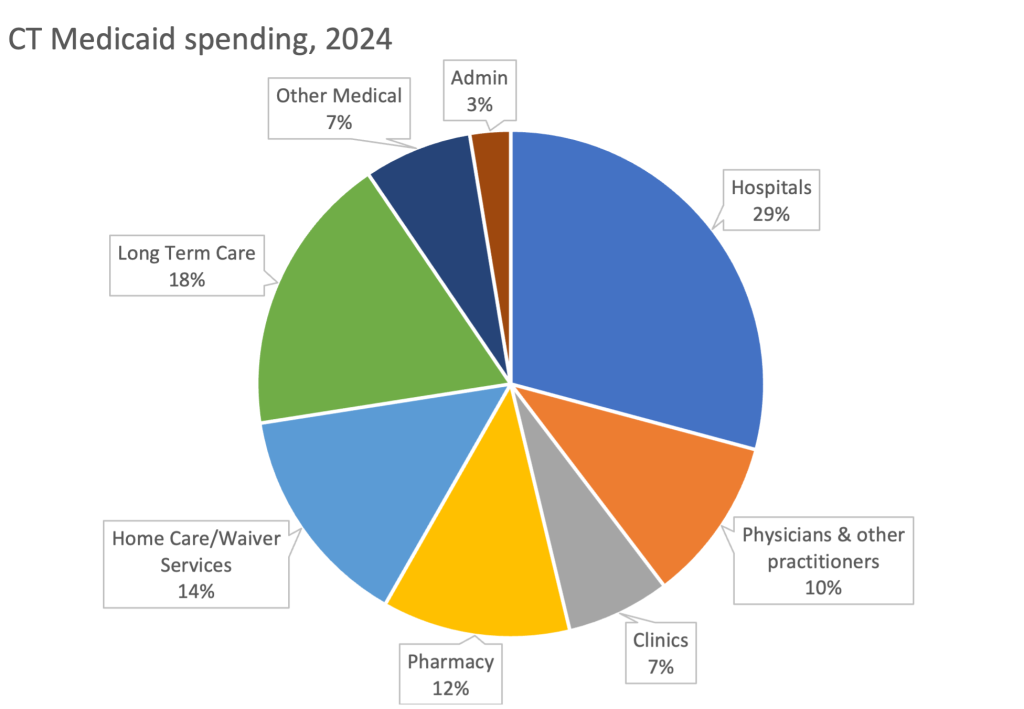Smart Savings
Analysis: State agencies need partners to avoid the havoc that’s coming
Lately, I’ve been reminded of both the importance and the difficulty in working with state agencies. But collaboration between state agencies and outside stakeholders who share the same goals has never been more important. Read more
Read MoreMedicaid chapter in CT Healthcare Explained updated
We’ve made a massive update to the Medicaid chapter of CT Healthcare Explained. The update was prompted by new numbers and updated performance. We also included the significant changes to the program required by the budget bill passed by Congress and the Trump administration this month. We also included a description of Connecticut’s decision not…
Read MoreAnalysis: CT is a National Leader in Fight to Control Drug Costs
This year, Connecticut passed meaningful laws to control stubbornly-high prescription drug prices. According to the Office of Health Strategy, prescription drugs are among the top three drivers of Connecticut’s unaffordable healthcare costs, across Medicaid, Medicare, and private insurance. States don’t have the powerful levers that federal policymakers could access, and federal law can be a…
Read MoreCoverage chapter in CT Healthcare Explained updated
We’ve refreshed the numbers, links, and trends in the Coverage chapter of CT Healthcare Explained. The update was prompted by new numbers but also by significant potential changes being considered by Congress and the Trump administration now. We have a lot to lose in Connecticut, where our uninsured rates are low compared to other states.…
Read MoreUpdated data tool finds CT life expectancy 8 years better than US, but large disparities
County Health Rankings has updated their massive dataset for 2025, and Connecticut is doing well overall. We live longer than residents of other states, but our quality of life is just average. There are also significant health differences between communities in our state. The site has a wealth of data, and an AI-powered tool to…
Read MoreCT is underfunding public health despite growing risks, Updated CT Public Health resource
Public health focuses on preventing health problems rather than the more costly treatment of patients when they are ill. Experts estimate that only 20% of our health outcomes are connected to clinical care services. Over the 20th Century, Americans’ life expectancy rose 62%. Those gains were largely due to effective public health initiatives. More recently…
Read MoreOpinion: Advice From An Advocate For Connecticut’s Next OHS Commissioner
Last week, the Governor announced that Diedre Gifford will be leaving the state Office of Health Strategy (OHS) next month. The agency has an ambitious mission — access to high quality, affordable healthcare for every state resident. It’s a heavy lift. Healthcare prices keep rising, the quality of care is just average, and everyone has…
Read MoreNutrition initiative could save $908 million per year in CT healthcare spending – Potential Medicaid LTC spending relief option
Medically tailored meals (MTMs) could save Connecticut $6,299 net per year per person, by far the highest savings among states, according to a new study published in Health Affairs. This research offers an important option to address Connecticut Medicaid long-term care costs that not only saves money, but also improves health. MTMs are nutritious, prepared…
Read MoreReform section updated in CT Healthcare Explained
We’ve updated the Reform chapter of CT Healthcare Explained, our explainer website cutting through the complexities of our state’s healthcare system. Like the other 17 topic sections, Reform includes a Basics summary and a much longer Deeper Dive into the issue. In the left hand box, you can skip to your specific question. There is…
Read MoreHUSKY still very efficient but drugs are driving up costs
Read the full report Like other states, Connecticut Medicaid per member costs are beginning to increase after dropping during COVID. However, Connecticut’s rate trend remains better than other states. Since switching from managed care organizations in 2012 to focus on care management, Connecticut Medicaid spending stabilized while enrollment expanded significantly, according to the state’s latest…
Read More






